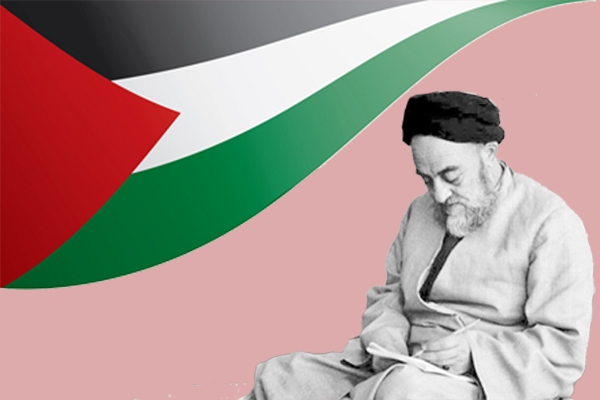‘Puppet Government’: How A Prominent Muslim Philosopher Saw Israel 60 Years Ago

Seyyed Mohammad Hossein Tabatabaei (1904-1981 CE), better known as Allameh Tabatabaei, was among these thinkers who could not remain silent in the face of an emerging threat against Muslim nations in the region.
Other than lecturing in seminary schools, Allameh Tabatabei also used to provide answers to students from across the world who would ask about various issues through the mail.
Some of the questions revolved around his main expertise; Islamic philosophy, a field that addresses fundamental questions about existence, including topics like quiddities, causation, knowledge, soul, God, and religion, using a rational and discursive approach.
Meanwhile, there were some mails that referred to contemporary developments. One of them emerged in 1963 as a student living in the United States posed a question about the establishment of a Jewish state in the Palestinian land.
The question referred to some narrations that said the Jews would not be able to establish an independent country. It then claimed “Israel” has proved this wrong, asking whether such hadiths or narrations were created by policies that meant to keep hostility between regional people.
In response, Allameh Tabatabei writes:
In Palestine, there exists a small portion that serves as a seaport and military base for the British, French, and American, and a puppet government known as the Israeli government holds control over this area. Despite its short existence, this government has devoted substantial efforts to fortify and equip the region to the fullest extent possible. Moreover, they have exerted tremendous influence to prevent Islamic nations from uniting against them.
Noting that there were some ongoing policies in the world that seek to maintain ignorance and animosity towards Islam, he also referred to some Quranic references to Jews:
After naming the crimes of the Jews and their treacheries against Islam and Muslims, and after advising Muslims to be united and observe religious rules and not to befriend or obey them, the Quran says God's anger is upon the Jews, and they are doomed to be humiliated and disgraced forever and they cannot harm the Muslims, unless the Muslims allow them to do so, by disobeying God and His laws. [Surah Al-Imran]
In another verse, the Quran points to the cause that could allow the latter to happen as taking Jews as allies, Allameh Tabatabaei said.
“As you can see, God Almighty promises the growth of Islam against Judaism to those Muslims who observe Islamic rules and maintain unity, not to those Muslim countries that have nothing other than the name of Islam,” he added in the letter, originally written in Persian.
Allameh Tabatabaei warned against an alliance of some Muslims with the Israeli regime six decades ago but rulers of some Muslim-majority states such as Bahrain, the UAE, and Morocco decided to normalize ties with the occupation regime in 2020.
Who is Allameh Tabatabei?
Allameh Tabatabaei was a prominent Iranian scholar, philosopher, and thinker of modern Shia Islam. He was born in 1903 in Tabriz and died in 1981 in Qom.
He studied in Najaf, Iraq, where he mastered various fields of Islamic sciences, such as tafsir, fiqh, hadith, kalam, and philosophy. He also learned from famous masters, such as Ali Tabatabaei, Mirza Muhammad Husain Na'ini, and Sayyid Abu'l-Qasim Khwansari.
He wrote many books and articles on different topics, such as Quranic exegesis, philosophy, mysticism, history, and ethics. His most famous work is Tafsir al-Mizan, a 27-volume commentary on the Quran, which he wrote between 1954 and 1972.
Read More:
He also wrote The Principles of Philosophy and the Method of Realism, a five-volume work on Islamic philosophy, with the commentary of Morteza Motahari. He also had dialogues with Henry Corbin, a French philosopher and orientalist, on various issues of Islamic thought.
He played a significant role in the intellectual revival of the Qom seminary and the development of Islamic philosophy, the branch that was founded by Abu Nasr Muhammad al-Farabi (870-950 CE) and has three major schools namely: the Peripatetic or "Mashsha'" philosophy, the Illuminationist or "Ishraq" philosophy, and the Transcendent Philosophy or "al-Hikmat al-Muta'aliya".



